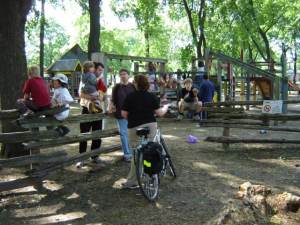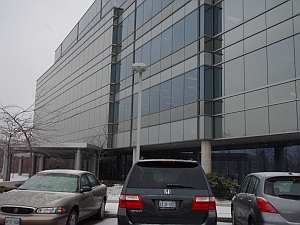Controls: show
 Document
Document
 Comments:
Comments:
[log in] or [register] to leave a comment for this document.
Go to:  all documents
all documents
Options: show
Path:
Looking inside:
 Governance Project: Related Media
Governance Project: Related Media
( display item 9)
display item 9)
Contact:
Website:
[home] [about] [help] [policies] [legal disclaimer]
Subsites:
 documents
documents topics
(or
topics
(or  site menu)
site menu)
 blogs
(or
blogs
(or  posts)
posts) library resources
(including
library resources
(including  pictures)
pictures) database (all)
database (all)
Members:
 Governance Project: Related Media
Governance Project: Related Media
 return to container details page
return to container details page

 previous display previous display |
next display

|
 Document
Document
 The e coli scare
The e coli scare
24-Oct-2012 [7354]
On August 23, 2006, City TV ran a 3-minute item on the level of e-coli in Toronto wading pools. The item was piggy-backing on a scandal in Montreal that showed high levels of various organisms in Montreal's swimming pools.

Dufferin Park Wading Pool
The wading pool item showed low levels of e-coli in all the pools tested except for one: Dufferin Grove's pool. Later it emerged that the City TV tester had waited to take the sample until the pool had been cleared for re-chlorination. Then he swooped down, over the protest of the wading pool staff, and took his single sample. Since the Dufferin Grove wading pool is possibly the busiest in the city, the tester had a good chance of hitting the jackpot. And he did. That made for a nicely shocking news item. But the story doesn't end there -- some follow-up questions needed to be asked.

Dufferin Grove Park playground
1. What can be learned from taking only one sample? A research method that takes only one sample can't be called scientific. Multiple samples in different spots are the first rule of testing technique. It's very likely that three samples taken at the same time elsewhere in the wading pool would have had a very different result. Some years earlier, the group Environmental Defense made a big media splash with the announcement that Dufferin Grove playground had dangerously high levels of arsenic. Re-testing with six samples a few weeks later showed low arsenic or zero everywhere in the playground. The first story got lots of play; the follow-up got none.
2. Beyond the sensational but inadequate e-coli or arsenic level testing, the next questions is: where is the evidence?
In the case of arsenic levels, what evidence exists that children who play in park playgrounds have elevated arsenic in their bodies? None was given. In the case of e-coli versus higher chlorination levels in wading pools, the scientist we interviewed was very dubious. In his view, chlorinated pool water may be far more dangerous than resistance-inducing e-coli. And no evidence was offered in the media coverage about children getting sick after being in the Dufferin Grove wading pool. There is an apparent lack of interest in scientific method: getting the whole picture.

Canadian Standards Association office, Mississauga
3. The third thing to consider in how 'science' gets used in popular discourse is: whom does this story benefit?
In the case of the arsenic in playgrounds, Dufferin Grove playground was one of the holdouts against the large-scale playground destruction that had taken out so many fine wooden playgrounds and replaced them with new plastic structures. The playground manufacturers who sold these structures to schools and municipalities were the same people who sat on the playground standards committee of the "Canadian Standards Association." The people at Environmental Defense asked Dufferin Grove users: "don't you think you should replace your playground with a new structure?" They continued to ask this question even when the lab results showed that arsenic levels were lower than those that can be found in nature.
In the case of e-coli scares, there are a number of groups getting benefits. The media, obviously, who can draw more audience. The whistle-blower, who can get more publicity, which may help with fundraising. The equipment manufacturers, who can get more contracts. The planners and architects and construction companies and demolition crews, who can get contracts to take out the old and bring in the new. The bureaucrats, who can justify their roles and maybe even increase their staffs and therefore their budgets, if they can help highlight a problem and offer themselves as part of the solution.
In every case, the multiple benefits to these interested groups may be entirely justified. But there will be higher costs going along with the recommendations following on any science-invoking crisis. Citizens have to ask careful questions and find allies among thoughtful, disinterested scientists. How to find such allies when they're needed is one of the questions this website tries to answer.
 previous display previous display |
next display

|
 home
home
 about
about

